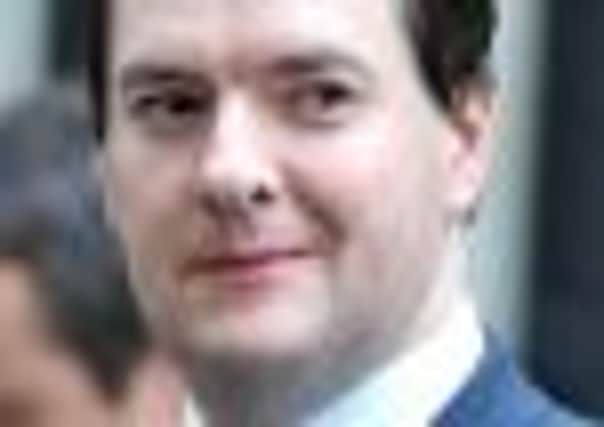Debt target failure ‘may delay wind farm funding’


Industry analysts have voiced concern after it was confirmed the deteriorating economic situation laid bare in Wednesday’s Autumn Statement is likely to delay the progress of the Green Investment Bank, set up to support key low-carbon energy projects such as offshore wind.
The bank was formally launched by Ministers last week with £3bn of capital, but Mr Osborne had stipulated it will not be allowed to borrow money itself until the UK’s debt levels began to fall – supposedly in 2015.
Advertisement
Hide AdAdvertisement
Hide AdWith that target now certain to be missed, the bank will only be able to fund relatively small-scale schemes until well into the second half of the decade.
“The problem is that these things always come down to the money in the end,” said Mark O’Brien, director of the Team Humber Marine Alliance, which represents offshore wind supply chain firms in East Yorkshire.
“We are talking about huge projects which require funding, and the Chancellor’s stance seems counter-productive, really.
“On the one hand he is saying yes, let’s push ahead with this, and then on the other that he can’t afford to help.”
Advertisement
Hide AdAdvertisement
Hide AdNick Medic, director of offshore wind for national trade body Renewable UK, predicted the delay would now coincide with the end of the Government’s current subsidy regime in 2017, when many offshore wind developers will be seeking finance.
“The fact it seems that the Green Investment Bank will be delayed from borrowing for a further 12 months is not helpful to the offshore wind sector,” he said.
“The Green Investment Bank was initially greeted with strong excitement, but it now seems that at the earliest it will be borrowing just as the (subsidy scheme) ends.
“Developers are seeking financing now and this delay is not welcome.”
Advertisement
Hide AdAdvertisement
Hide AdThe fall-out from Wednesday’s grim economic news continued yesterday when respected think-tank the Institute for Fiscal Studies (IFS) revealed a new £27bn black hole in the Government’s spending plans for the three years after 2015.
The IFS said it appears further sweeping cuts to benefits and tax rises appear inevitable after the next General Election.
Budget hole: Page 4; fuel fund collapses: Page 9; Comment: Page 12.